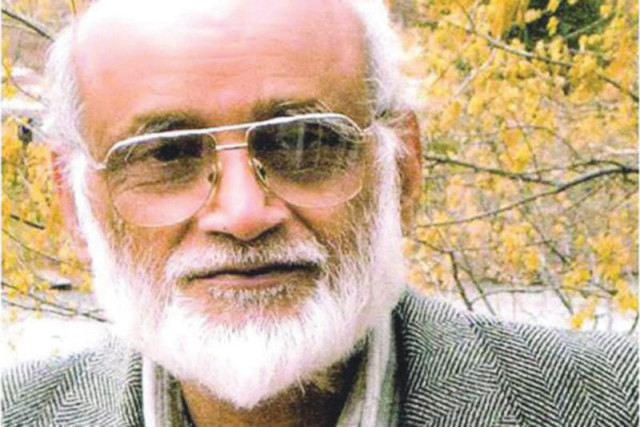Book review: The Muslim League in Barabanki - perplexities of partition
CM Naim is on the horns of dilemma over Partition and speaks about it openly.

Author C M Naim.
Spanning an arc from a youngster to a protester, Naim sheds light on his engagements with India and Indian Muslims. He highlights the rampant religious discrimination against Muslims at the workplace, unequal representation in the legislative body and the neglect of Urdu as an official language. With poor to no support from the leadership, the growing grievances led to Muslim demands for a separate state.
While the author documents the general attitude of inequality towards his community, he does not shy from including Muslim intolerance towards minority groups such as Ahmadis citing unchallenged facts that stem from history and religion. By recollecting certain facts that have been buried deep in our minds under years of propaganda and lack of an open discussion, Naim breathes fresh life into the circumstances that led to Partition, even questioning the very motive of Muslim protesters — including his own. He makes it a point to uproot prejudices and shun hypocrisy, winning over readers with his honest voice.

Published by City Press and available for Rs350.
Poetry has a prominent role to play in Naim’s work. While discussing the political use of poetry, terming it ‘pedestrian’, he notes how a powerful poem can leave a lasting impression. This assertion is strengthened with the inclusion of poems that were recited at the All-India Muslim League and Indian National Congress public meetings in his hometown, Barabanki, in the 1940s. And while these poetic verses remain etched in his memory, he has forgotten the speeches delivered at those meetings.
Critical of the Urdu press in India for what he says is misguiding the Muslim community and promoting the ignorant ‘ghetto mentality’, Naim quotes extensively from Urdu newspapers to illustrate his point. While the Urdu-speaking people highlight praises for their language from non-speakers they rarely, if ever, indulge in reciprocating the act of kindness. Naim even speaks of English-speaking, well-educated Muslims passing up Urdu newspapers to reflect their status, leaving the majority at the mercy of the Urdu papers filled with fallacies and self-contradictions. Along with the Urdu newspapers he even holds a group of clergy responsible for misleading the community, with special regards to the issue of female education.
Although Naim laments the decline of Urdu poets in India, the country is famous for having produced a number of renowned Urdu writers and poets, many of whose works have changed the course of history. And while almost all of Naim’s arguments have sound reasoning and are backed with proof, it is eventually up to the reader to read and reflect.
Published in The Express Tribune, Sunday Magazine, April 27th, 2014.



















COMMENTS
Comments are moderated and generally will be posted if they are on-topic and not abusive.
For more information, please see our Comments FAQ